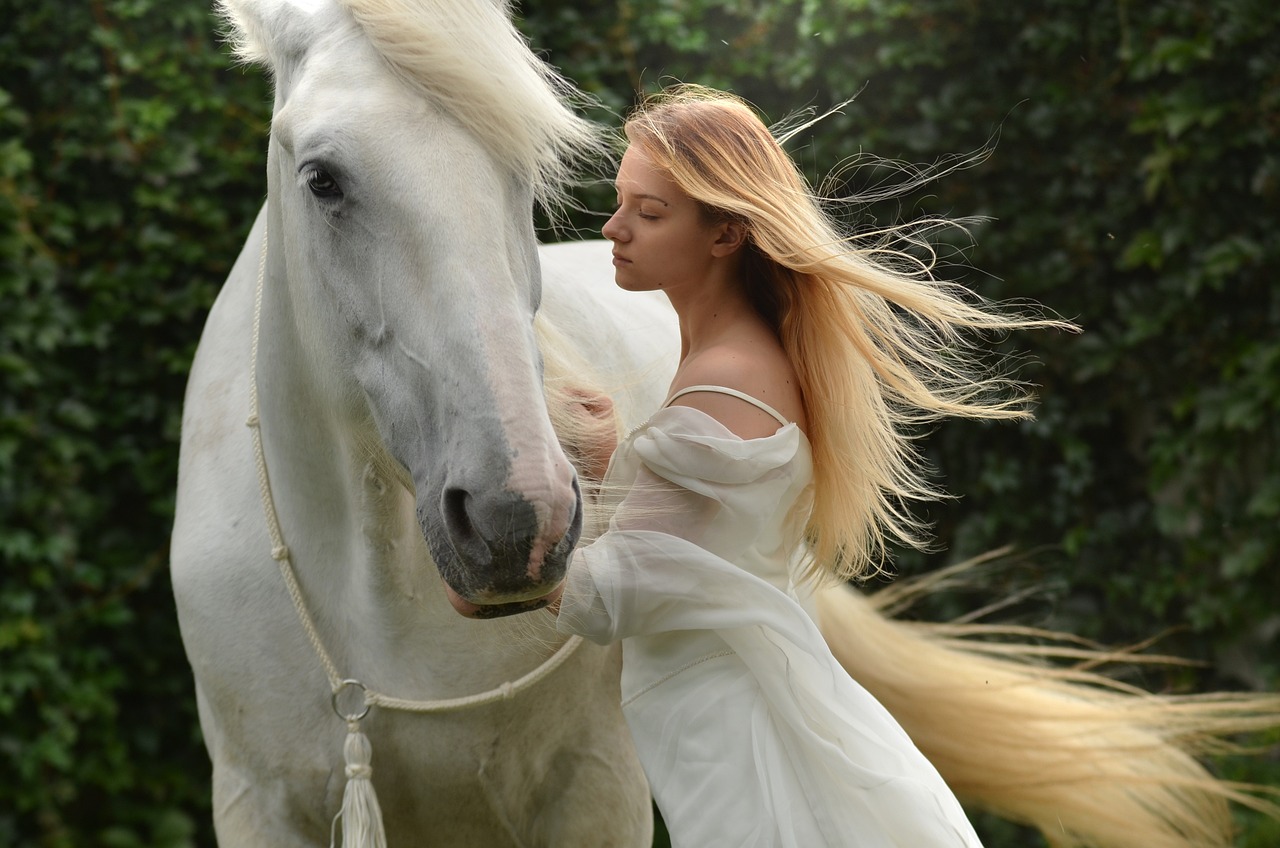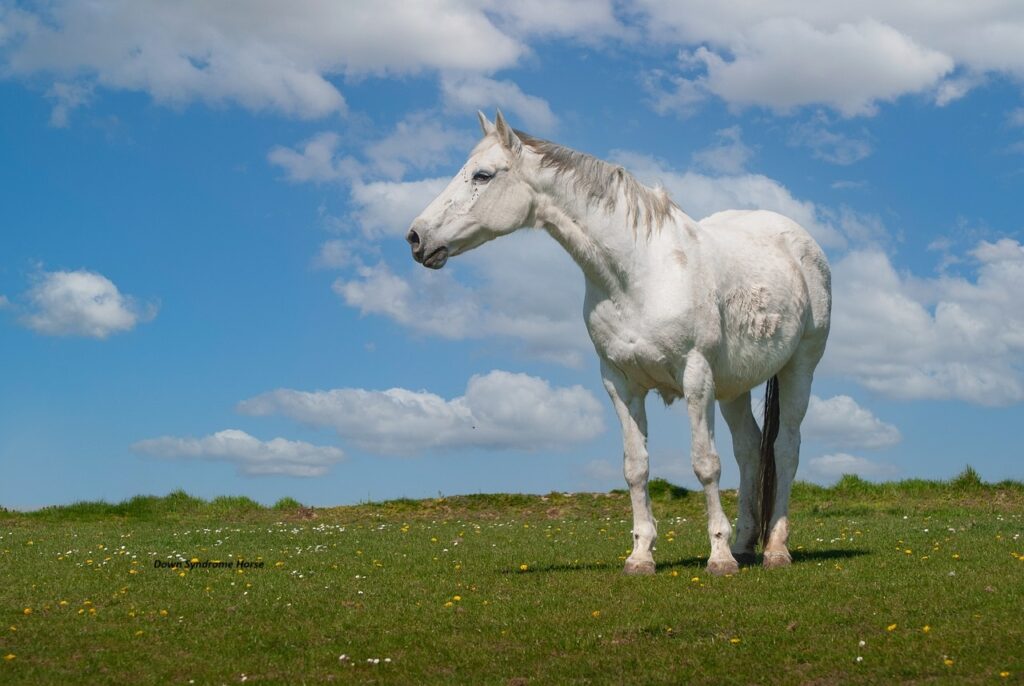Introduction
Down Syndrome horses have become a beacon of hope and inspiration for many families. Their connection with individuals with Down Syndrome reveals the profound impact of equine-assisted therapy. This therapy not only brings joy but also serves as a powerful tool for emotional and physical growth. By observing the interaction between horses and individuals with Down Syndrome, we learn about resilience, empathy, and the healing power of these magnificent animals.
For families navigating the challenges of Down Syndrome, equine therapy provides a unique avenue for enrichment. Horses offer Down Syndrome Horse nonjudgmental companionship, and their rhythmic movements during rides can significantly improve motor skills and balance. This transformative experience is creating inspiring stories worldwide.
What is a Down Syndrome Horse?
Down Syndrome Horse” refers to the use of horses in therapy to assist individuals with Down Syndrome. These horses foster emotional growth, physical health, and social skills.
Understanding the Concept
While horses cannot have Down Syndrome, they are instrumental in therapies designed for individuals with this condition. Their involvement provides a unique platform for growth. Through riding, grooming, and bonding, individuals gain physical strength and emotional stability. Horses’ non-judgmental presence helps participants overcome challenges like communication barriers and low muscle tone. The term symbolizes how equine therapy addresses the needs of people with Down Syndrome.
Why Horses are Ideal for Therapy
Horses are naturally gentle and attuned to human emotions, making them ideal therapy animals. Their rhythmic gait helps improve balance and posture, simulating Down Syndrome Horse walking patterns. Participants often find comfort in a horse’s calm demeanor, which can reduce anxiety. Non-verbal communication with horses enhances patience and understanding. These attributes create a nurturing environment for therapy.
The Role of Horses in Down Syndrome Therapy
Horses play a vital role in therapy, providing both physical and emotional benefits that aid the development of individuals with Down Syndrome.

Physical Engagement and Movement
Riding improves posture, muscle strength, and coordination, which are often challenges for individuals with Down Syndrome. Horses’ movement mimics a Down Syndrome Horse walking pattern, helping to strengthen core muscles. Sessions often include exercises to target motor skills and joint flexibility. Therapists use the horse’s gait to engage specific muscles, promoting improved movement.
Emotional and Cognitive Support
Working with horses boosts self-esteem and emotional regulation. Activities like grooming enhance focus and develop problem-solving skills. Building trust with a horse can help participants overcome fear and anxiety. These experiences improve patience and create opportunities for non-verbal connection.
Benefits of Equine-Assisted Therapy for Down Syndrome
Equine-assisted therapy supports physical, emotional, and social development, offering a holistic approach to managing challenges associated with Down Syndrome.
Physical Development Through Riding
Riding sessions improve balance, coordination, and core strength, addressing common physical challenges in Down Syndrome. The rhythmic motion of the horse helps enhance joint mobility. Regular participation promotes better posture and overall physical endurance. These benefits contribute significantly to independence and self-confidence in movement.
Social Skills and Emotional Growth
Horses encourage interactions that build social awareness and teamwork. Participants develop empathy and improve their ability to interpret non-verbal cues. Group activities during therapy sessions often foster friendships and collaboration. Horses’ calming presence helps individuals manage emotional responses and build resilience.
Real Stories How Horses Help Individuals with Down Syndrome
Inspiring stories demonstrate the transformative power of equine therapy, highlighting improvements in physical ability, emotional connection, and social engagement.
A Child’s Journey to Confidence
Parents often share stories of their children overcoming fears through equine therapy. For many, the experience of riding a horse unlocks newfound confidence. These sessions help children express themselves more openly and develop trust. Families celebrate milestones, such as better balance or more engagement in social activities.
Families Witnessing Transformation
Therapy provides a shared joy for families, as they observe their loved ones grow. Parents describe how the therapy setting creates positive changes in their child’s demeanor. The gentle interaction between the horse and participant often inspires a deeper family connection.
Getting Started with Equine Therapy for Down Syndrome
Beginning equine therapy involves locating certified programs and understanding their focus on safety, accessibility, and tailored approaches for Down Syndrome.
Finding Certified Programs
Search for centers accredited in equine-assisted therapy for individuals with special needs. Certified programs ensure safety for participants and Down Syndrome Horse appropriate training for horses. Parents should assess the facility and inquire about the program’s approach to Down Syndrome-specific challenges.
What to Expect in Sessions
Sessions usually include grooming, riding, and interacting with horses under the guidance of trained therapists. These activities are personalized to support Down Syndrome Horse physical, emotional, and social goals. Families can expect participants to gradually gain confidence and skills through regular sessions.
How do horses assist individuals with Down Syndrome in therapy?
Horses assist by fostering physical development, emotional stability, and social growth through activities like riding, grooming, and leading, tailored to individual needs.
Physical Benefits of Horse-Assisted Therapy
Riding a horse improves balance, posture, and muscle tone, addressing physical challenges common in Down Syndrome. The horse’s gait mimics the human walking pattern, promoting core strength and coordination. These physical benefits can enhance mobility and independence over time, boosting overall quality of life.
Emotional and Social Connection with Horses
Horses provide a calming, non-verbal connection that encourages emotional growth. Grooming and leading activities build trust, patience, and responsibility. Interacting with horses helps individuals with Down Syndrome develop empathy Down Syndrome Horse and social skills, fostering meaningful relationships in therapy settings.
What makes horses ideal for supporting people with special needs?
Horses’ intuitive, non-judgmental nature and rhythmic movements make them perfect for therapy, helping improve motor skills, emotional regulation, and confidence.
Social and Cognitive Improvements
Horses are sensitive to human emotions and can offer unconditional support, making them a great fit for individuals with special needs. They respond to both positive and negative emotions, providing a non-judgmental space for therapy.

Physical and Mental Engagement
The act of caring for and riding horses stimulates both the body and mind, improving muscle strength, joint mobility, and mental clarity. This makes them particularly beneficial in promoting overall well-being for those with special needs.
Conclusion
Down Syndrome horses exemplify the healing power of animals. Their gentle nature and ability to connect with individuals facing unique challenges Down Syndrome Horse make them indispensable in therapeutic settings. Equine therapy is a testament to how nontraditional approaches can yield extraordinary results.By integrating the benefits of horse therapy into the lives of individuals with Down Syndrome, we unlock potential, build confidence, and create a world where inclusion and joy are the norm.



